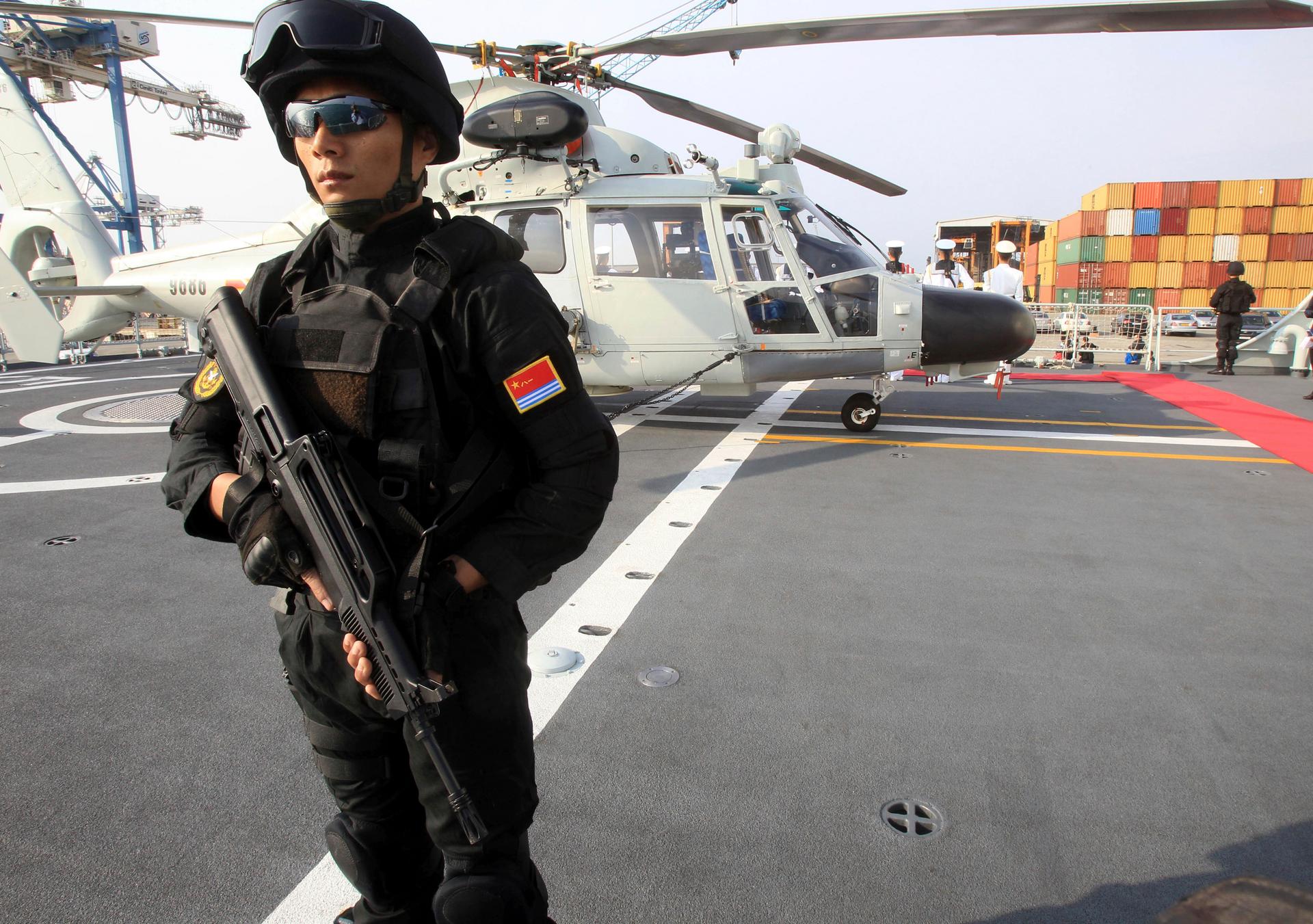Finally, the chemical weapon materials are moving out of Syria
A Chinese commando guards the helipad of the Chinese frigate Yancheng, docked at the port of Limassol on January 4, 2014. The Yancheng frigate will escort a Nordic mission tasked with removing Syria’s stockpile of chemical weapons.
Russian and Chinese Navy warships have escorted the first batch of Syria's chemical weapons material out of the country's port of Latakia. A Danish ship carried the material into international waters.
It's an unprecedented effort to destroy chemical weapons in a country embroiled in civil war — and where the chemical weapons have actually been used.
The UN and the Organisation for the Prohibition of Chemical Weapons (OPCW) are responsible for safely removing the materials — which may take weeks or even months to complete.
"This is a numbers game," says BBC reporter Anna Holligan, who has been following the process.
Holligan says she has heard that there are nine containers on board the Danish ship, which hold 16 tons of chemicals. That's out of 630 tons of chemicals that were supposed to be removed from Syrian territory by the end of December. That deadline was missed because of the many challenges involved in the task.
"The easy part was to get [Syria's] President Assad to sign up to the chemical weapons convention," Holligan says. She says getting the material to the port was very difficult, with a civil war raging.
"There has been heavy fighting along one of the main roads between Damascus and Homs, which is the route towards the port. The OPCW talked about constantly changing frontlines and … bureaucracies. And even bad weather has forced a lot of the roads to close," she says.
Eventually, the chemicals will be transferred onto the US Navy vessel Cape Ray, which will be stationed in international waters. Trained staff on the Cape Ray will then neutralize the chemicals and dispose of them.
It may take weeks, or even months, before the operation is completed.
Holligan spent a week on a Norwegian ship providing security for the Danish vessel and she describes the mood as positive. "The crew would run through drills using the chemical protection gear, because they were aware of the potential danger involved, how attractive this cargo may be, that it could be subject to attack by those who may wish to destabilize the operation," she says. "So they would say 'we don't expect anything, but we are prepared for everything.'"
Holligan says the crew was "highly motivated" — proud to be helping in an operation that "the whole world approves of."
